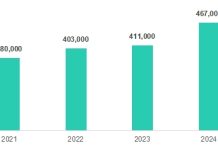The full statement from SAMENTA national president Datuk William Ng, regarding Prime Minister Datuk Seri Anwar Ibrahim’s scheduled meeting with p-hailing companies tomorrow (8 Aug)
Prime Minister Datuk Seri Anwar Ibrahim and Transport Minister Anthony Loke are scheduled to meet p-hailing industry players on Tuesday.
The primary agenda is to find out if the p-hailing players could pay their riders more and to provide better welfare so as not to be taken advantage off by these quasi monopolies.
It is not only the riders that are finding themselves at the losing end of the commercial arrangements with the p-hailing companies. SMEs have been lamenting for years of the extortionist rates charged by these players.
For example, a typical streetside stall who wants to join the platforms would need to pay a staggering 32 percent of commission to these companies. On top of that, if a stall owner is to participate in the many ‘promotions’ offered by the platform owners, they have to pay up to another 30 percent in commission, otherwise their stalls will be less visible on the platforms than those who coughed up the extra commission.
As a result, most SMEs have no choice but to increase the prices of their products on these platforms to cover the extortionist commission, resulting in Malaysians paying anything from 10 to 100 percent more when buying off these platforms compared to purchasing directly with the respective merchants.
On the pretext of supporting innovation and encouraging greater digitalisation and e-commerce, these p-hailing operators have escaped regulatory oversight, and in the process victimising and enslaving the very industry they purportedly support.
What is shocking to most SMEs is that these same players are charging as low as 8 percent in commission to larger, chain restaurant owners – indicating that perhaps these companies can be profitable at that commission level. In China, Meituan charges a maximum of 12 percent in commission while remaining profitable.
On a recent trip to Vietnam, I discovered that Grab subsidises heavily their transport and food delivery services. For example, a two-km ride on a car in District 1 of Ho Chi Minh City cost me 21,000 Vietnamese dong (about RM4) while a similar ride from Wisma Genting to Menara Maybank in Kuala Lumpur cost RM16 on a ‘surge’ pricing. That’s 400% the fare in Vietnam.
Similarly, I ordered some food delivery from a local stall in Vietnam and discovered that after heavy subsidisation from Grab, an order of 5 seafood dishes cost a mere 148,000 dong (about RM28).
This begs the question: are the exorbitant charges Malaysian SMEs are paying to the p-hailing companies being used to subsidise businesses in other markets where these companies are trying to gain stronger market shares?
When the Prime Minister meets the p-hailing companies on Tuesday, we hope he will demand these companies to answer the following:
- Why are Malaysian SMEs being charged up to 32 percent in commission when Meituan in China can charge as low as 5 percent (in commission)?
- Why are larger restaurant chains being charged as low as 8 percent while SMEs, with lower margins, are being charged 32 percent plus other promotional charges?
- Are Malaysian SMEs subsidising the businesses in Vietnam?
- Will these companies open up their books and show the revenue, rebates and subsidies and costs for the Malaysian market versus that of Vietnam and Indonesia?
It is crucial that we encourage greater choice and competition within the p-hailing industry. If that is not possible due to the monopolistic /oligopolistic nature of the industry, then it is time to consider breaking up these players by limiting their ability to service multiple industry sectors and/or to limit their commissions via legislation.















